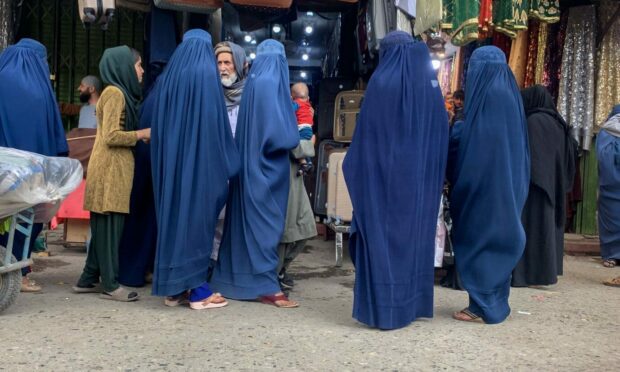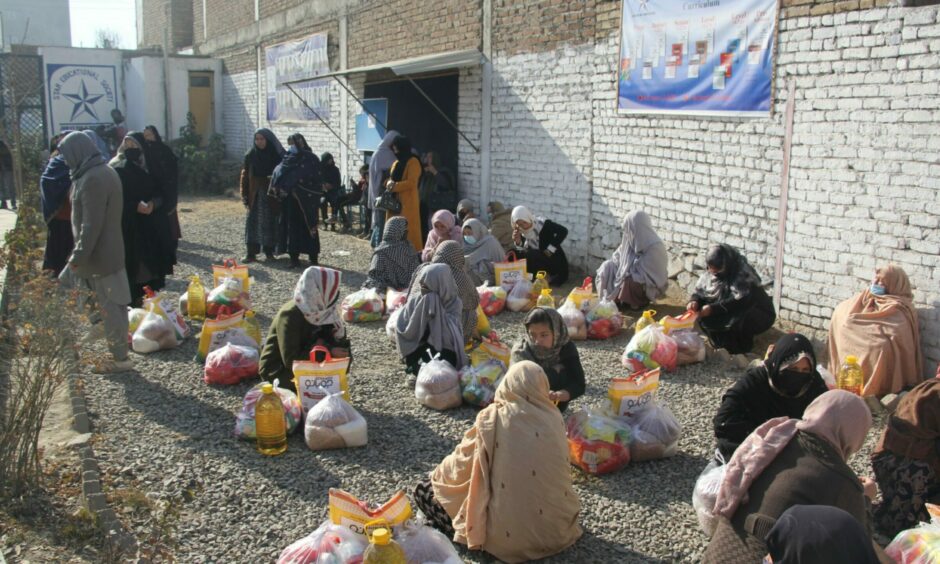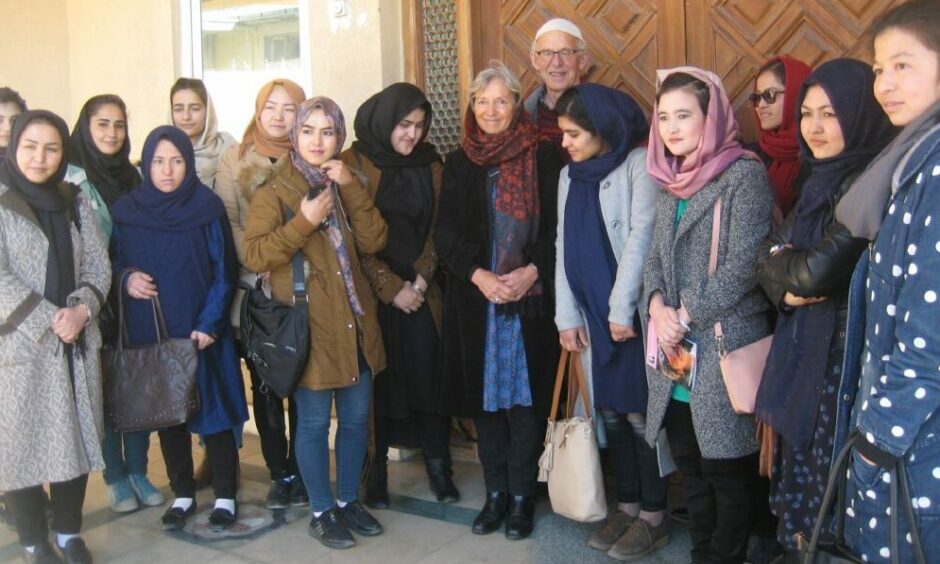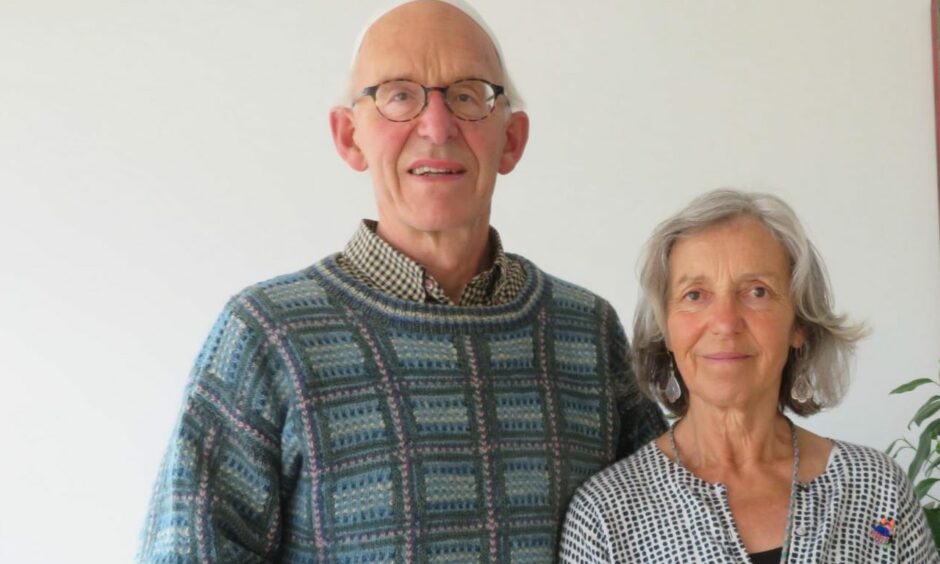Female students forced to halt medical training in Afghanistan have spoken of their hope of completing their courses in Scotland.
The women had their studies stopped after Taliban blocked them from attending university.
They now live under severe restrictions, many fearing for their lives due to their gender or ethnicity.
The Lewis-based Linda Norgrove Foundation is urging the UK Government to help the women flee their home country and move to Scottish universities.
Their route to the UK has to be through the Afghan Citizens Resettlement Scheme (ACRS).
Medical students hope to graduate in Scotland
But the charity, backed by MP Jamie Stone, says the first year of the scheme ended with no sign of the second year opening up.
The Press and Journal has contacted four students who desperately want to come to Scotland.
Their medical studies ended in December but they still hold ambitions to graduate.
One 23-year-old student was four years into her six-year medical course in December when it was shut down.
“It has been months now and we don’t have any clue about what’s going to happen next and what is our future.
“I am nervous about how long it will take me to finally achieve my goal.
“Am I going to get my degree for which we have been studying day and night, fighting with all the negative mentalities in our country?
“And now, when I have completed four years and there is just two more years to come, we have been banned.”
‘A basic human right’
She said she chose to study medicine to help people in her country who need support.
“If I am given the chance of continuing my studies in Scotland I will make sure to use this opportunity in the best way possible.
“Education is a basic human right and women in Afghanistan should not be deprived of their rights.
“I will make sure to help people get free treatment as well as cost-free education so they don’t suffer what we have been through.”
‘Taliban won’t allow me to complete my education and reach my dreams’
An 18-year-old student in her second year at university hopes to complete her studies in emergency medicine.
“I hope to conduct research in the field of health care infrastructure and work with government agencies and legislators to find creative solutions to improve access to emergency facilities in currently underserved areas of Afghanistan.”
She says she wants to help deliver high quality and cost-effective health care, particularly in rural areas.
She adds: “The Taliban will not allow me to complete my education and reach my dreams, so I am very anxious to go to Scotland.”
The student said “all my life changed” when the Taliban took control of the country.
She was not allowed to complete her final year in school and is told to wear black clothes and hide her face.
“I am accepting all these rules, but I wanted to continue my education. Now I have become sick day by day, I feel depressed. I feel myself like an inmate.”
‘Tired of being a girl’
Another 18-year-old, in her first year at university, hopes to specialise in neurosurgery.
She said on the last day of studying her classmates embraced and cried: “That was the day I felt really tired of being a girl.”
She added: “Thinking about coming to Scotland and continuing my education at a Scottish university makes me excited and hopeful for a bright future.
“This hope has helped me stay strong and insist on learning and acquiring new skills in this disappointing situation.”
The teenager said she could not attend her final school year and was banned from going to a private education centre and then university.
She has now turned to online classes to fight the Taliban orders.
But as Afghanistan’s economic situation worsened, her mother lost her teacher’s job and her father’s salary was significantly reduced.
Lost freedoms
She has also lost freedoms she once had: “Going to parks and social gatherings, celebrating festivals are no longer allowed by the Taliban.
“No study for me and my sisters, no job for my mother, no songs and funny TV shows. No park or other places for entertainment.”
She said as a female and Hazara she has gotten used to danger.
“Successive attacks on Hazara private educational centres have put Hazara students’ life, including my own, in danger.
“The Taliban, generally, do not respect women and girls, and even insult them, beat them, stone them publicly under the pretext of wearing inappropriate clothes, walking with a strange boy on the street, and so on.
“Honestly, there is no feeling of safety for me when I go out; there is always fear of being killed by an attack, or fear of being disrespected by the Taliban.”
Another student, aged 24, has studied for three years.
She said: “It has become totally impossible for a girl to follow her education, which is my basic right as a human.
‘I want to help my poor people’
“Harming, sexual violence and even killing of girls who continue their dreams and fight for their and the society’s bright future, is easy for the Taliban.”
The student says she wants to qualify to help people in Afghanistan.
She wants to “bring back the smile on my unfortunate and poor people’s faces”.
She added: “I am going to be the balm for girls’ wounds.
“I am going to save patients’ lives so that there should not be a single patient dying from a common disease.”
She adds: “The prospect of coming to Scotland is the light in the heart of dark days of my life.
“My family and I excitedly welcome the opportunity and I promise to do my best.”
Students’ stories are ‘heartbreaking’
John Norgrove, who with his wife Lorna set up the foundation in memory of their aid worker daughter, said it is heartbreaking hearing the students’ stories.
“It is hard to comprehend just how urgent and desperate this situation has become for our students.”
He said the government committed to take in 20,000 refugees, but in reality, there is no means to get them here.
“They have closed one pathway, but not opened another one and none of their recent correspondence has given us any indication of when that pathway might open.”
He said the charity is struggling with complicated bureaucracy and slow pace of the system.
The Home Office said since August 2021, the government has brought thousands of Afghan women and girls to safety in the UK.
It said supporting the resettlement of eligible Afghans remains a top priority.
Are you interested in more exclusive and breaking Highland and Islands news from The P&J? If so, why not join our dedicated Facebook page HERE.




Conversation